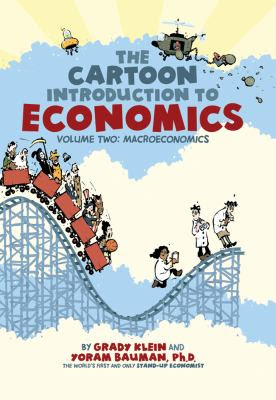Summary:
"Need to understand today's economy? This is the book for you. The Cartoon Introduction to Economics, Volume Two: Macroeconomics is the most accessible, intelligible, and humorous introduction to unemployment, inflation, and debt you'll ever read.
"Whereas Volume One: Microeconomics dealt with the optimizing individual, Volume Two: Macroeconomics explains the factors that affect the economy of an entire country, and indeed the planet. It explores the two big concerns of macroeconomics: how economies grow and why economies collapse. It illustrates the basics of the labor market and explains what the GDP is and what it measures, as well as the influence of government, trade, and technology on the economy. Along the way, it covers the economics of global poverty, climate change, and the business cycle. In short, if any of these topics have cropped up in a news story and caused you to wish you grasped the underlying basics, buy this book."
Table of Contents:
- Introduction
- Unemployment
- Money
- Inflation
- Gross Domestic Product (GDP)
- The Role of Government
- Trade and Technology
- The Classical View of Trade
- Complications
- Foreign Aid
- Foreign Currencies
- The End of the Business Cycle?
- The End of Poverty?
- The End of Planet Earth?
- The End of Youth?
- The End
My Take:
OK, how could I pass this one up? I didn't expect to learn anything much from this, but was curious to see how the authors explained various macroeconomic concepts -- and I wasn't disappointed. As a stand-alone volume, it's probably better to read Volume One first if you don't really know much about economics, as Volume Two presumes you understand basic microeconomic concepts ... but together, they're a good refresher for someone who hasn't had econ in a while or a good intro for folks who've never had but want to understand the basics at a layperson's level.

No comments:
Post a Comment